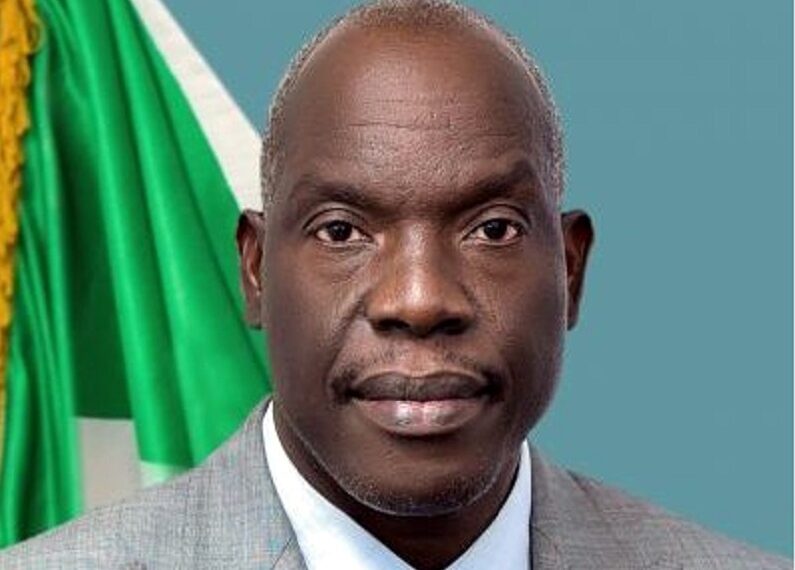
Nigeria is suitably positioned to become a superpower in the unfolding energy transition regime given its over 200 million population and abundant energy sources, the Nigerian Upstream Regulatory Commission (NUPRC) has said.
The NUPRC Chief Executive, Gbenga Komolafe, disclosed this in a statement on Thursday.
Mr Komolafe said as a country, Nigeria boasts of 37.064 billion barrels of oil with a daily production of over 1.5 million barrels of oil which makes it rightfully positioned to achieve the right energy mix for sustainability of energy supply.
In terms of reserves, he said Nigeria ranks 2nd in Africa, 8th in OPEC and 11th in the World. On the other hand, the nation ranks 1st in Africa, 6th in OPEC and 15th in the World in terms of crude oil production.
He explained that the GDP per capita for Nigeria stands at $1,998 which ranks her at 12th position amongst the OPEC member states and 22nd in Africa.
Mr Komolafe said crude oil contributes over 85 per cent to Nigeria’s foreign exchange earnings, with GDP contribution of about 6.33 per cent. On the other hand, Algeria’s contribution is 10.2 per cent, Angola’s is 30 per cent and Libya’s is at over 50 per cent.
He noted that Nigeria is a nation where needs meet with opportunity.
“Nigeria is blessed with potentials for blue energy, solar, wind, biomass as well as other sources of renewable energy to leverage for the right energy mix in the energy transition regime.
“Unfortunately, in the years preceding the enactment of the Petroleum Industry Act (2021), investments in the Nigerian oil and gas industry declined due to regulatory uncertainty in addition to de-funding of fossil fuel development occasioned by energy transition and COVID-19.
“Most of the International Oil Companies (IOCs) deprioritized Nigeria in their portfolios leading to the redirection of CAPEX to other countries and the attendant dwindling investment in Nigeria’s upstream sector,” he said.
For instance, he said, Nigeria’s total annual upstream capital expenditure decreased by 74 per cent from $27 billion in the year 2014 to less than $6 billion in 2022.
“More so, increasing competition from regional peers has led to a decrease in the proportion of the overall upstream investment attracted by Nigeria.
“This under-investment is also reflected in the country’s rig count,” he added.
On average, he explained that Nigeria had 17 active oil rigs in 2019 representing one of the highest counts on the African continent as of then.
According to him, Nigeria’s average rig count declined to 11 in 2020, 7 in 2021, and 10 in 2022, but recently grew to 24 in April 2023, a positive signal of new investments trickling into the country.
He said this is also a reflection of investors’ acceptance of the effective implementation of the Petroleum Industry Act (PIA) by the regulator.
In contrast, he said other OPEC members countries such as Iran, Iraq, Algeria, Libya, and Angola had 117, 62, 31, 12 and 9 active rigs respectively as of February 2023 as against Nigeria’s rig count which stood at 13.
“However, following two years of high energy prices, the global oil and gas industry is experiencing a boom that could be directed to capital investment in the upstream.
“The projected outlook over the next few years is positive, and as an industry, we need to leverage on this opportunity by doing all that is necessary to attract more investments and revive the Nigerian upstream sector,” he said.
The official emphasised the need for oil and gas producers in Africa to embrace the reality of green transition and take a strategic position to leverage the opportunities presented by the unfolding era has indeed become more pressing.
“Energy transition plans have also been derailed by the unprecedented global energy crisis provoked by the Russia-Ukraine war as reiterated by the G7 Ministers of Climate, Energy and the Environment.
“It is therefore incumbent on us as industry stakeholders to embrace climate action initiatives targeted at emissions reduction while ensuring that opportunities arising from the increasing demand for credit in the Voluntary Carbon Markets do not elude us,” he added.
In response to the dynamics of the energy transition and the global footprint, he said the NUPRC has embarked on the development of a regulatory framework for carbon-pricing systems to make businesses pay for their emissions and incentivize emission reductions through carbon credits.
“The Commission has risen to the occasion by establishing a new Department, “Energy Transition & Carbon Monetization”, saddled with the regulation of the oil and gas carbon market and we will soon revert to the industry on proposed actions and measures in this regard.
“It is pertinent to state that Nigeria is already charting a new course in the Upstream Petroleum Sector and is poised to secure a blossoming energy future through effective implementation of the PIA that potently provides legal, governance, fiscal and regulatory frameworks for regulating industry operations.”
He added that the NUPRC in line with its mandate is developing forward-thinking technical and commercially viable regulations as regulatory instruments to promote transparency, efficiency, and innovation for the sustainable development of Nigeria’s hydrocarbon resources.
“We have continuously encouraged investors to leverage on the generous fiscal incentives in the PIA, such as zero hydrocarbon tax, reduced royalty rates based on production and across terrains, and tax consolidation provisions amongst others and take final investment decisions on their proposed upstream projects.
“With a proven gas reserve base of 208.62TCF (as of 1st January 2022), we are on track to increase our reserves volumes to 220 TCF in less than 10 years and 250 TCF thereafter.
“Our drive to increase our Gas Reserves and Production from its current volumes to meet the future energy demand of the country and the international market offers a huge investment opportunity not only for the exploration but also for the creation of the much-needed infrastructure to utilise the gas within the country as well as earn revenue for further development of our renewable resources,” he added.
Source: https://www.premiumtimesng.com/
